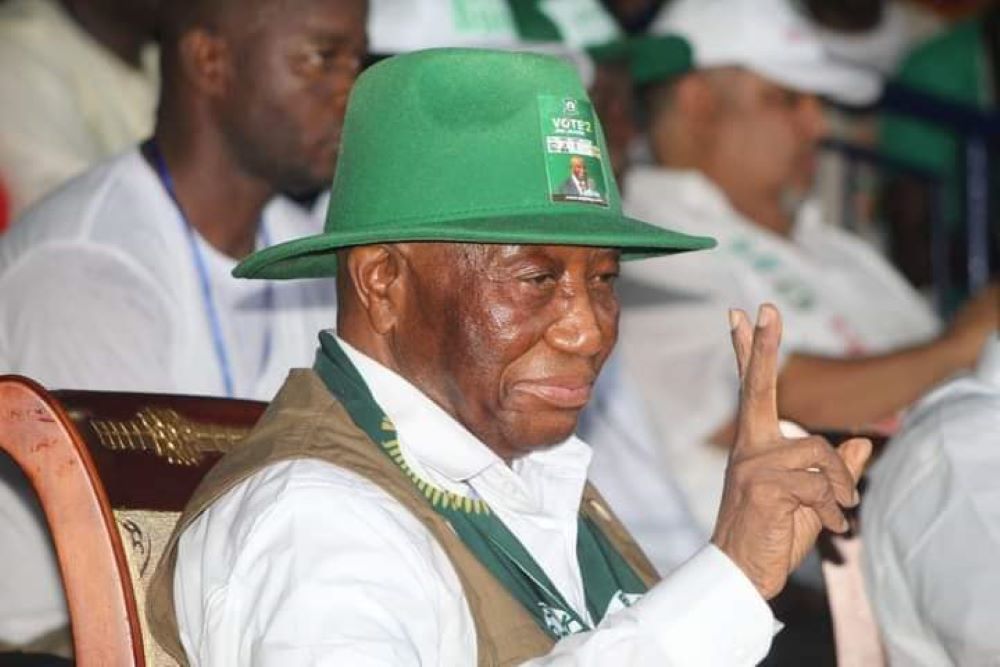A recent call for accountability and transparency within the Liberian government has emerged from Richlue Burphy, the head of the Boakai Conscious Movement (BCM). During a press conference held in Monrovia on October 21, 2024, Burphy urged President Joseph Boakai to initiate an audit of three critical government institutions: the National Disaster Management Agency (NDMA), the Ministry of Public Works (MPW), and the Ministry of Posts and Telecommunications (MPT). Burphy’s request is driven by widespread public frustration over perceived corruption and inefficiency within these institutions, with the aim of restoring trust among citizens regarding the management of their resources.
Burphy’s concerns are rooted in specific instances of inadequate governmental response, particularly the NDMA’s handling of recent flooding disasters that affected many communities across Liberia. He highlighted the suffering of displaced families and the slow response from the NDMA, questioning the reasons behind such inefficiency. According to Burphy, an audit will not only clarify the performance of the NDMA but also seek to prevent similar mismanagement in the future. This call reflects a broader desire among the citizens of Liberia to scrutinize how governmental resources are allocated and expended, emphasizing the importance of transparency in governance.
The MPW is also under scrutiny for its failures in completing vital infrastructure projects, including the rehabilitation of main road corridors. Burphy underscored that the poor state of roads directly impacts access to critical services and hinders overall development. He specifically pointed to the management of around USD 22 million that was allocated for improving road conditions, urging that an independent audit could identify inefficiencies and ensure accountability. In addressing these critical infrastructure challenges, Burphy emphasized that such audits contribute not only to fiscal responsibility but also to improving the living conditions of citizens.
Additionally, Burphy drew attention to the Ministry of Posts and Telecommunications, which is struggling to deliver reliable postal and communication services essential for economic growth. In an increasingly digital world, the inefficiencies of the MPT are seen as detrimental to both social interaction and economic development. Burphy’s advocacy for an audit aims to uncover the underlying issues plaguing this ministry and pave the way for improvements that could enhance connectivity across the country. His rhetoric positions this audit not merely as a bureaucratic exercise but as a necessary measure for the nation’s progress.
Burphy’s assertions are further amplified by rising public skepticism regarding the government’s commitment to combating corruption. His call coincides with broader societal challenges faced by Liberia, including infrastructure deficits, disaster management inadequacies, and communication inefficiencies. The Unity Party, once a staunch advocate of the people and good governance in its opposition phase, now finds itself facing mounting pressure to address these pressing concerns effectively. Burphy has positioned this moment not as a political attack but as a clarion call for accountability and governmental responsibility, encapsulating the urgency of putting the populace’s needs at the forefront of political action.
In sum, Burphy’s call for audits of the NDMA, MPW, and MPT reflects a growing movement among Liberians advocating for greater transparency in government operations. The BCM leader has framed the urgency of these audits as a crucial step toward rebuilding trust between the government and the community it serves. By spotlighting these institutions’ failures, he emphasizes that accountability is essential for Liberia’s future. As the nation grapples with its challenges, the insistence on systematic oversight may serve as a pivotal moment in Liberia’s ongoing struggle against corruption and inefficiency within its governmental framework.


